“Promoting holistic and inclusive developmental support in early childhood in Mongolia”, the result of the first year project`s exchange meeting was successfully held
Save the Children has successfully implemented the project “Promoting holistic and inclusive developmental support in early childhood in Mongolia” with funding from the Ministry of Foreign Affairs of Japan from March 2024 to March 2025. The project team organised an exchange meeting on 21st March 2025, to present the results of its first year, share the accumulated experience, and exchange ideas on future steps.
L.Bayan-Altai, Country Manager and Representative of Save the Children Japan in Mongolia, delivered the opening speech. He said, “The project has achieved many successes. Today, in addition to presenting the results of the project, we are here to discuss the experiences and lessons learned during this period. Alongside the results, we will also discuss the work to be done to improve it.” Takashi Umeda, Second Secretary of the Embassy of Japan, spoke at the meeting, stating, “Today, relevant individuals have gathered to review the activities of the project, present the results, and exchange their opinions. By sharing the results of this project and actively exchanging opinions, we have an important opportunity to review and evaluate the work implemented in the past year.”
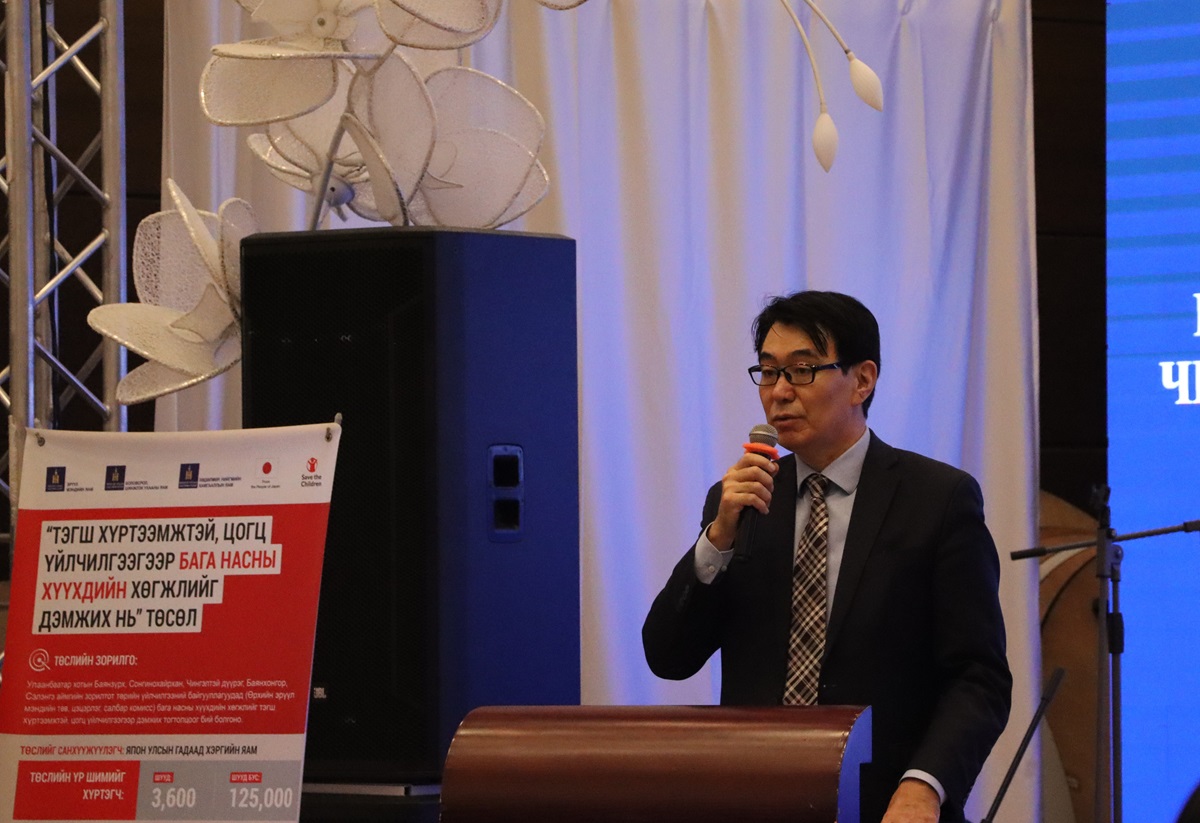
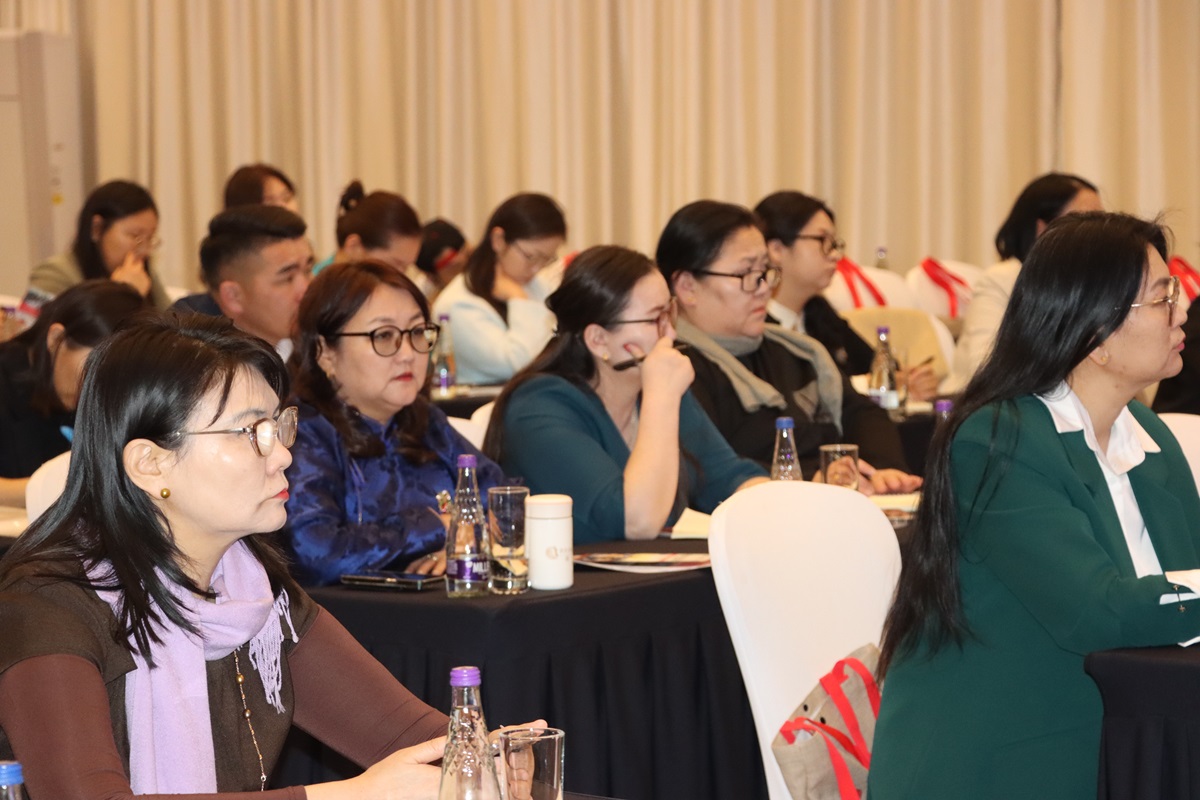
During the meeting, department heads and experts from the Ministry of Health, Ministry of Education, and Ministry of Family, Labour, and Social Welfare introduced the policies and implementation of the inclusive education and early cildhood development, the policies and implementation of earliychildhood health, and the policies and implementation of the Commission for the Prevention of childhood illness and disability.
Many results have been achieved of this project. For example, four training modules and manuals were developed and related specialised training sessions were organised to deepen the theoretical and methodological knowledge and understanding of early childhood development among targeted kindergarten teachers, family health centres and branch comissions. These effots aimed to help them master teaching methodologies that meet the different needs of children, improve early identification of developmental delays and problems in infants and young children by family health centre doctors and staff, enhance the quality of primary health care services provided to them, and empower members of the health, education, and social protection sector commissions for children with disabilities. A total of 78 doctors and staff, 148 kindergarten teachers, and 28 members of the branch commissions participated in these trainings.
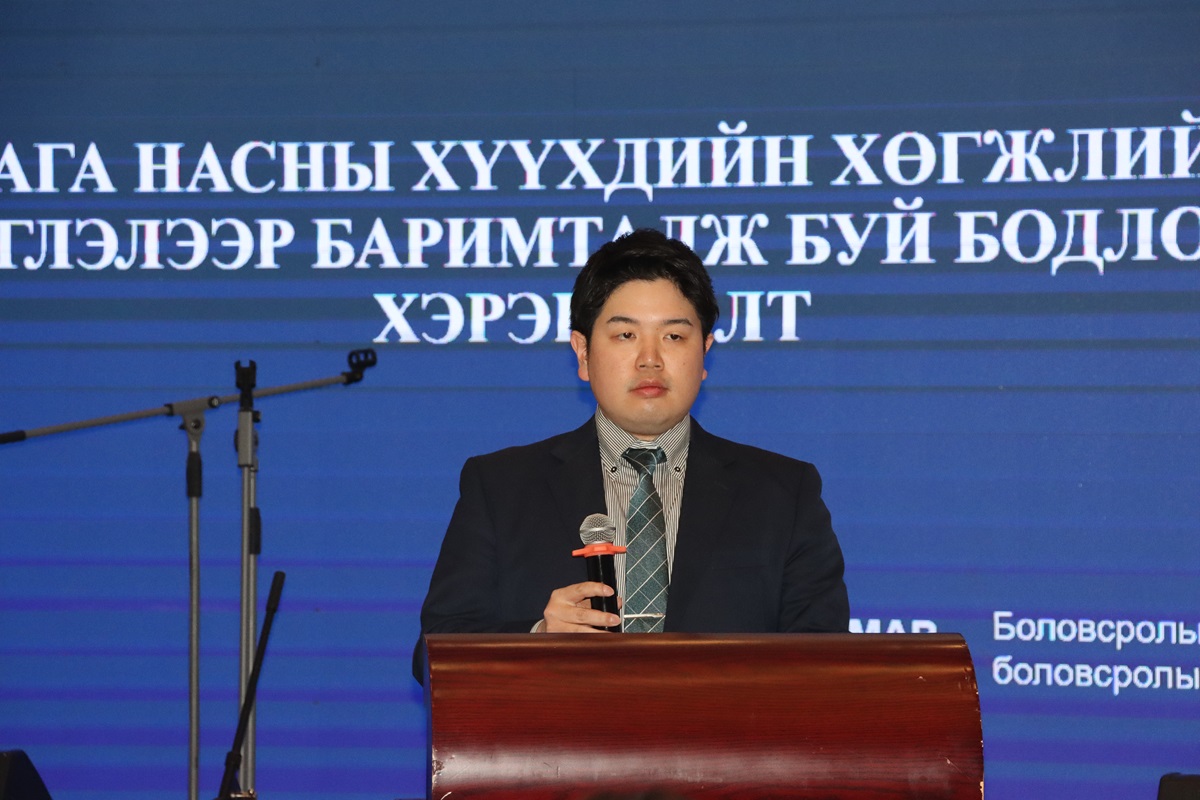
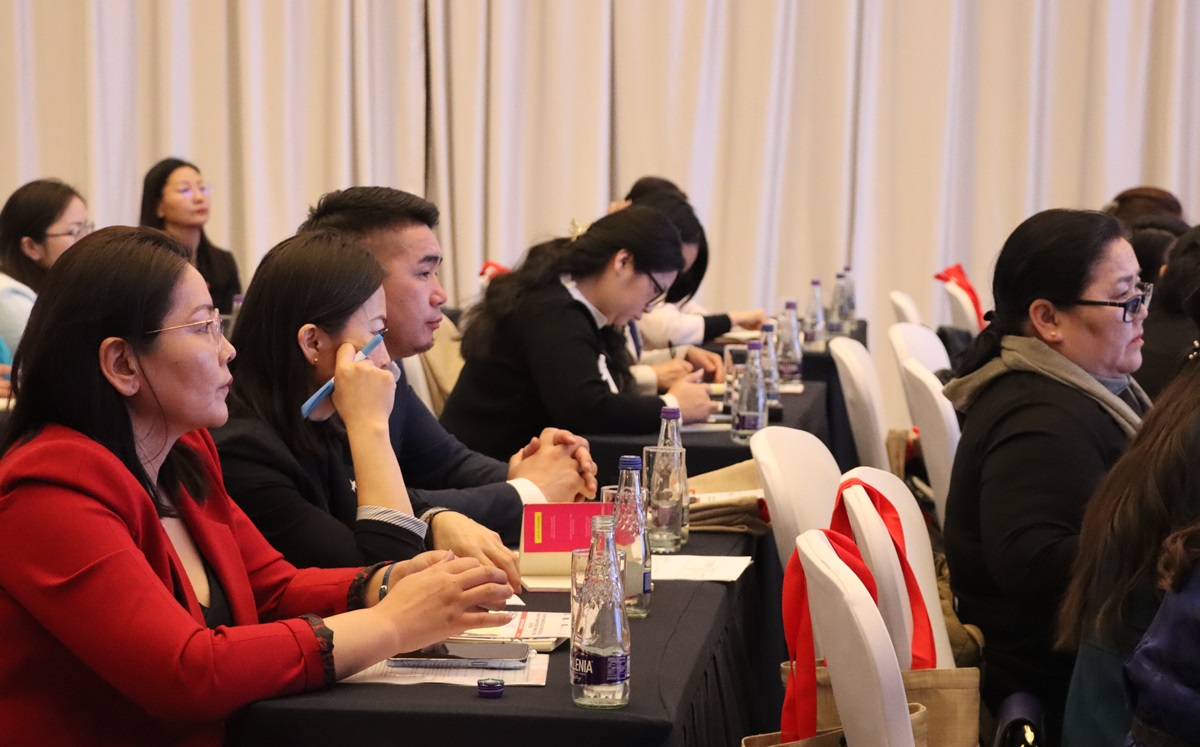
Additionally, five targeted family health centres and five kindergartens have been established to support the learning process of children with special needs. A “Child Development Space” and a child health examination room and corner have also been set up, and renovation works have been completed to improve the infrastructure for children. The benefits of the project have been directly delivered to more than 20,000 people.
More than 60 people attended the exchange meeting, including representatives of the Ministry of Health, the Ministry of Education, the Ministry of Family, Labour and Social Welfare, local state administrative and professional organisations, five targeted family health centres, five kindergartens, local education and health departments, as well as government and non-governmental organisations. During the event, Ts. Tsetsegsuren, Head of the “Enerekh” family health centre in Sukhbaatar soum, Selenge province, shared the results of the project. She said, “With the implementation of the project, doctors, medical staff, and parents have gained knowledge and information about early identification. As a result, the number of examinations has increased in 2025 compared to the previous year. In addition, doctors and medical staff have improved their skills in counseling children with developmental delays, and they are now able to perform early identification. In addition to purchasing equipment, bathrooms for people with disabilities has been installed as part of the project, and a ramp has been built outside the family health centres and kindergartens.”
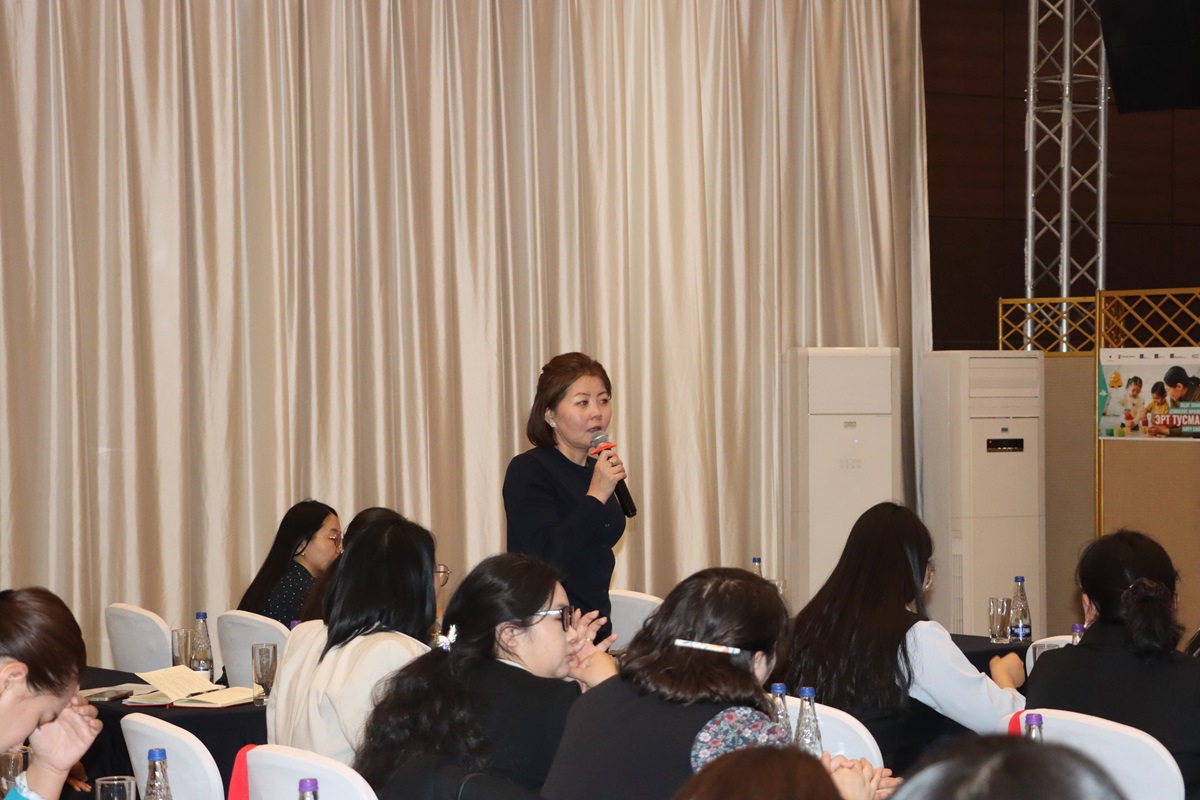
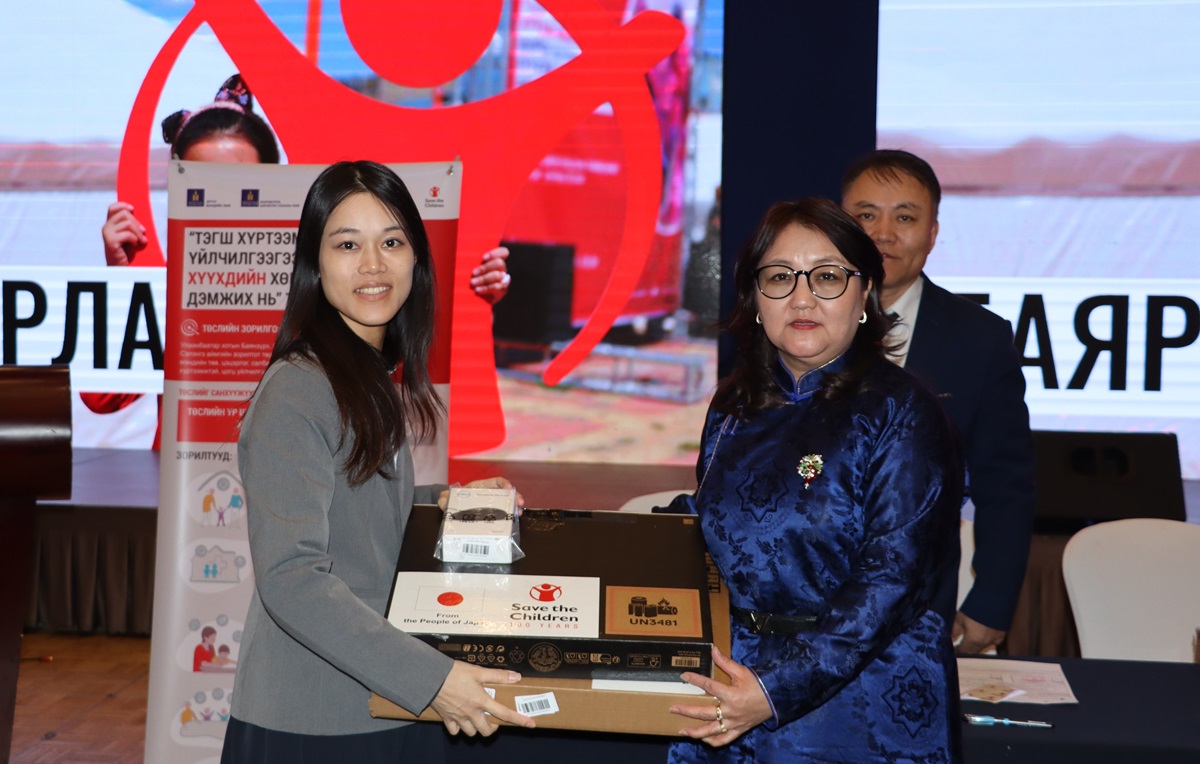
S.Uchralsaikhan, Head of kindergarten No. 16 in Bayankhongor province, expressed the results of the project, saying, “The project has provided training on how to include children with different needs in preschool educational institutions, provide services, and help parents recognise their children’s different difficulties and support their children’s socialisation process in a timely manner Many results have been achieved. Teachers and staff have increased their knowledge and skills in working with children with special needs. The project has established a “Child Development Space.” and the equipment and toys provided by the project are placed there.”
During this event, presented the project’s results were presented, and good practices were shared. At the end of the meeting, the project results and lessons learned were concluded, and questions from the participants were answered. Before closing the meeting, the necessary equipment was presented to project manager of the project implementers from the Bayankhongor and Selenge provinces.

